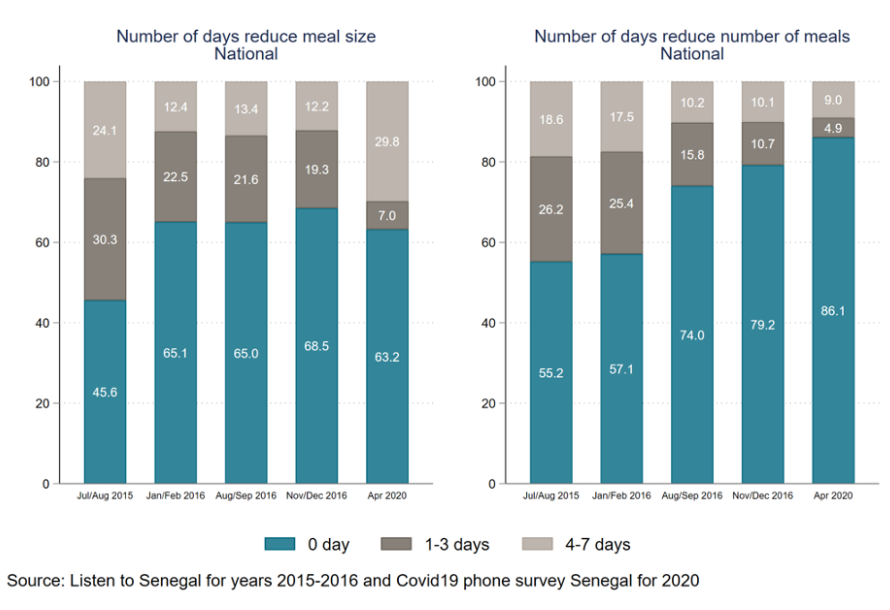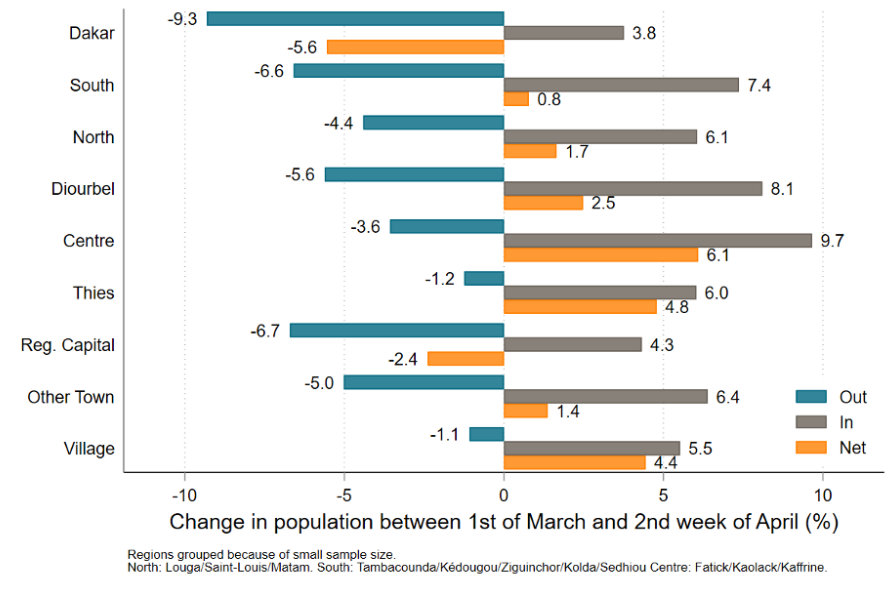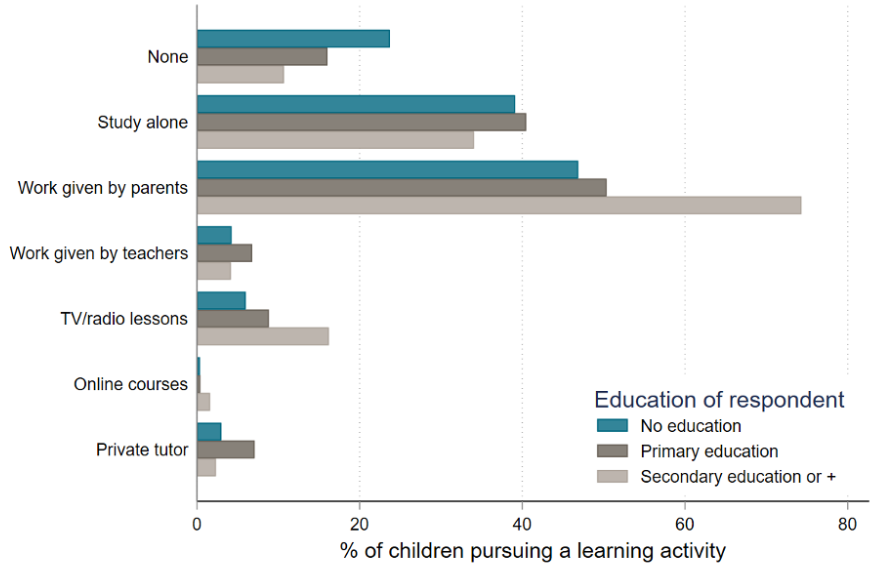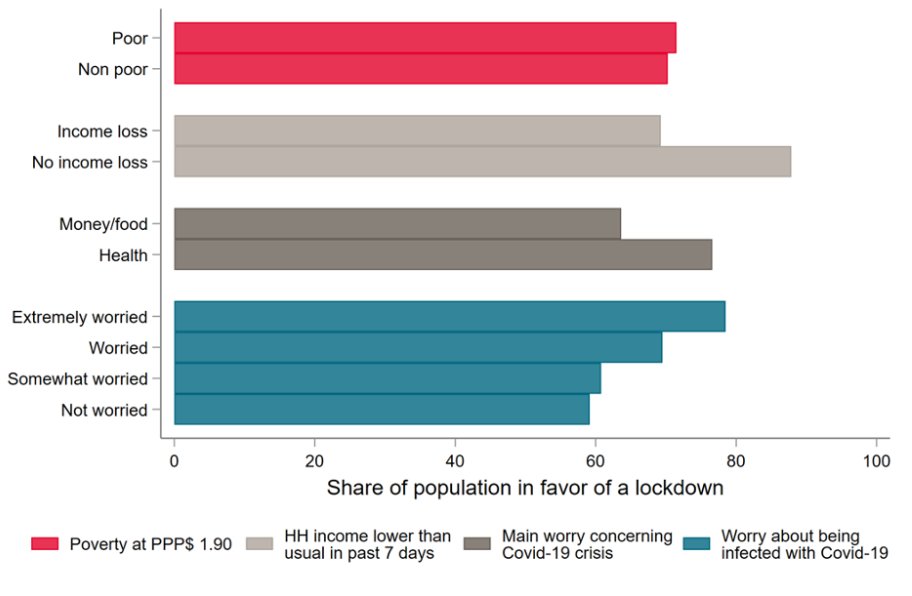The CGD education team and @sncrdes have partnered to do a rapid phone survey of 1,000+ people in #Senegal to document the impacts of the #COVID19 crisis. Here are some key findings of our study: https://www.cgdev.org/blog/five-findings-new-phone-survey-senegal">https://www.cgdev.org/blog/five... @lhmosco @JustinSandefur @Fihi_maFihi @leecrawfurd 1/10
87% of respondents report a loss in income and an indicator of food security (limiting the size of meals) is unusually high compared to previous estimates. 47% also complain that the price of rice has increased. 2/10
Similarly to what have been observed in other countries, Senegalese people have moved just before stricter measures were imposed. 5.4% have moved since last month and they have fled large urban centers to go to rural areas. 3/10
Senegalese people report high compliance with social distancing measures. Even the contentious measure of closing mosques is reported to be followed by 90% of people. 4/10
We included few questions on trust of the government from an online survey https://covid19-survey.org/results.html .">https://covid19-survey.org/results.h... Results show that Senegalese trust more their government (86%) to take care of them or for its communication (87%) than other countries. @jhaushofer 5/10
30% of children are not studying or studying alone. When the respondent had more education, children were more likely to be supported by parents. Also, TV lessons (10%) or online courses (<1%) remain marginal and almost totally absent in rural areas. 6/10
72.5% of people are in favor of a lock-down. Poor and non-poor support the lock-down at the same rate but the support is 19 pp lower for the ones who report an income loss.
Experience of shocks might be more important than income to explain support for lock-down. 7/10
Experience of shocks might be more important than income to explain support for lock-down. 7/10
There are many more findings in our report, which has been shared with the government. The reports in Fr and Eng, along the data, survey tools and codes for analysis have been posted on @dataverseorg . https://doi.org/10.7910/DVN/9XE95F">https://doi.org/10.7910/D... 8/10
We plan to follow the same panel of respondents in a few weeks to take the pulse of the population and see how the crisis impacts the population and how behaviors change. 9/10
We have been in touch with others doing similar projects in other countries. @poverty_action has set up a research hub for Covid-19 surveys ( https://www.poverty-action.org/recovr/research-hub)">https://www.poverty-action.org/recovr/re... and the @WorldBank is following-up some its LSMS panels. See also here http://yrise.yale.edu/covid-19/ ">https://yrise.yale.edu/covid-19/... @mushfiq_econ 10/10

 Read on Twitter
Read on Twitter





